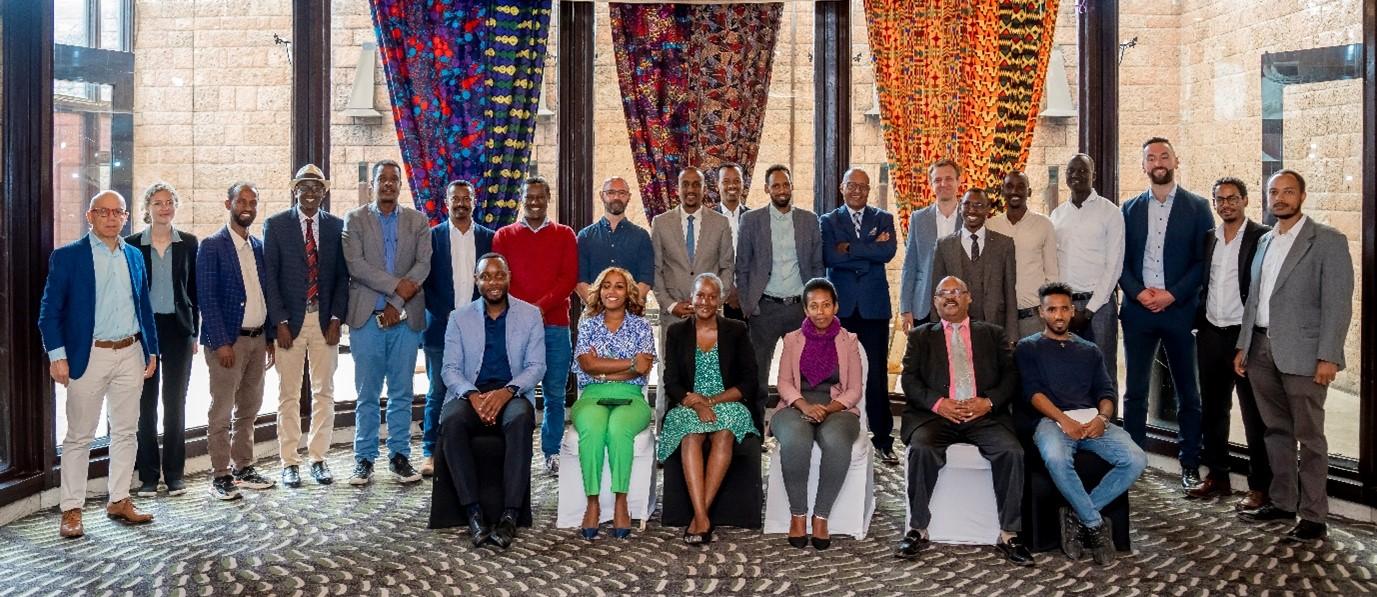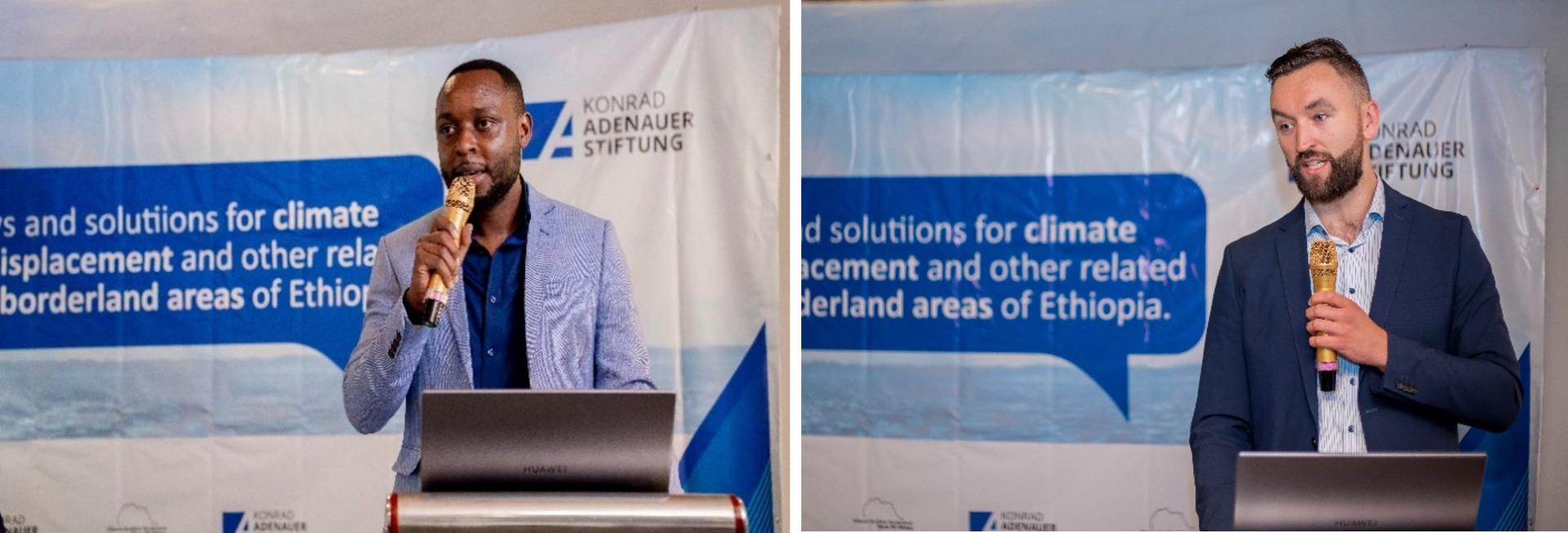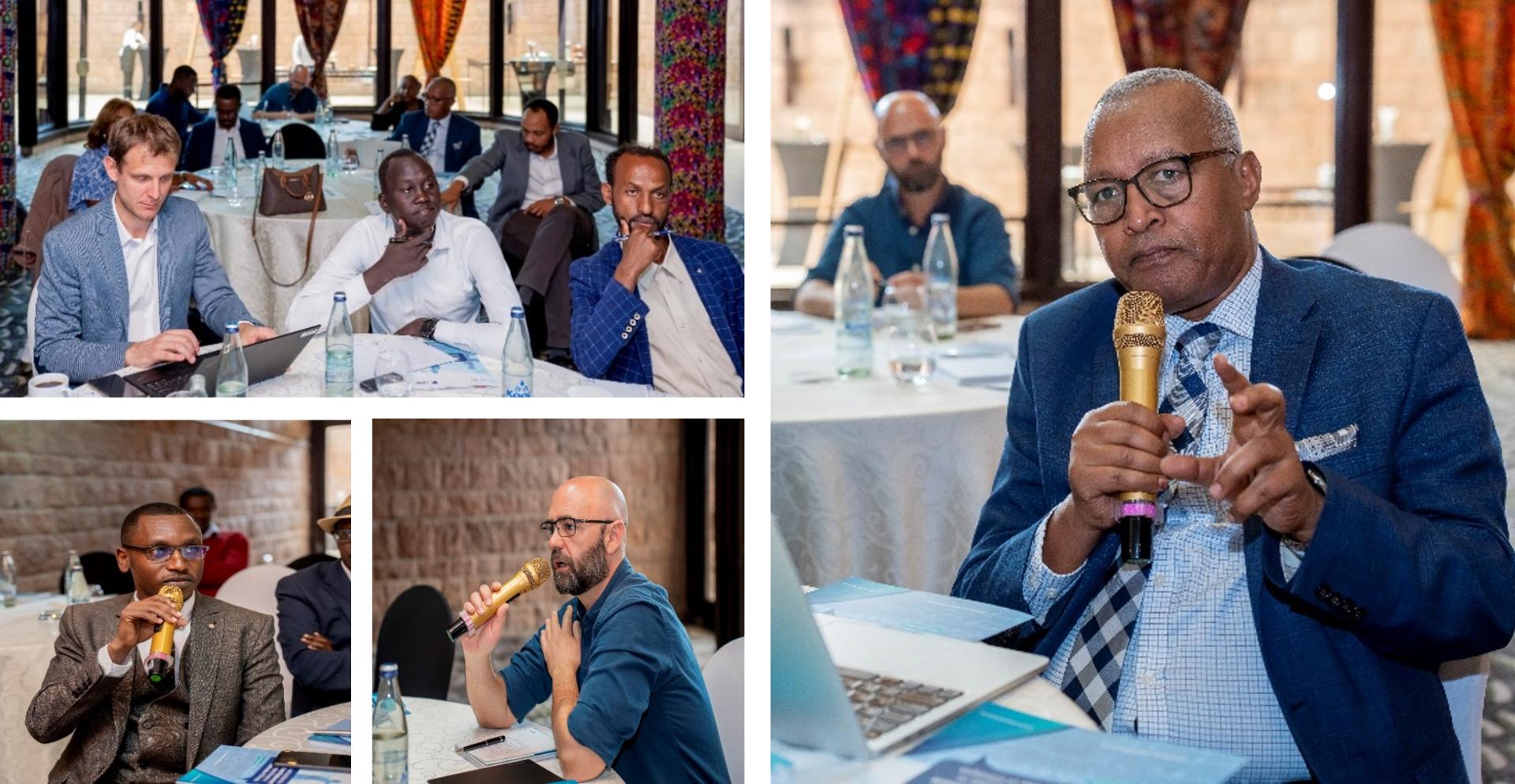The workshop was against a background of Ethiopia’s uniqueness as the only land locked country in the Horn of Africa. Bordering six other countries (Eritrea, Somalia, Sudan, Kenya, South Sudan and Djibouti), all of Ethiopia’s borderland areas are largely drought-affected lowlands which are also prone to conflict and forced migrations. Climate adversity in these areas impacts food security, livelihoods, stability, and land use patterns. The workshop aimed at collecting local perspectives on the impact of climate change and to provide local solutions to promote resilience and adaptation, so as to reduce displacement in the borderlands.
The workshop brought together 30 key stakeholders, scholars and experts and policy makers from relevant government offices – including the Ministry of Irrigation and Lowlands, the Ministry of Planning and Development, the Ethiopian Environmental Protection Agency and the Federal Disaster Risk Management Commission as well as development practitioners from international organisations and local CSOs (Civil Society Organisation).
In their opening remarks, both Niklas Mayer (Director, CRBi) and Edgar Mwine (Project Officer, RP SIPODI East Africa) highlighted the nexus between climate change, conflict, and displacement in the Horn of Africa and emphasised the need for such engagements and discussions as a way of enhancing collaboration, innovation, ideas exchange, and to design locally driven, sustainable solutions to these challenges.
The Senior Advisor of the State Minister for Irrigation and Lowlands, Mr Solomon Wakgari gave a keynote address in which he emphasised the need for collective, multifaceted action by all stakeholders to avert the climate crisis. He further emphasised the importance of research, lobbying and proactive actions to mitigate forced migration in Ethiopia.
Six scholars and experts from six different borderland areas of Ethiopia (Jigjiga, Dasenech, Moyale, Gambella, Mereb basin and Afar) presented discussion papers on the topic, with specific references to their respective areas. These ideas were discussed and matured into workable, local ideas to address these challenges. Even though the situations in these different regions were quite different, the presenters and discussants found many commonalities. For instance, prolonged droughts are the leading cause of forced migrations because they not only cause food shortage to humans but also lead to loss of livestock. The unpredictability of seasons and patterns of rain due to climate change, has greatly disrupted the ways of life and livelihoods and made it difficult for people to adapt.
In turn, the consequence has been that when people fail to adapt, they move to other areas, increasing competition for land, water and other resources which leads to insecurity and conflicts. On the other hand, some people opt to move to cities, where they also encounter other challenges like homelessness and health issues like cholera and urban crime.
From all the presenters and discussants, consensus was to the effect that addressing the climate change would go a long way to reduce conflicts in borderland areas of Ethiopia, but also reduce the outward movement of people. Some of the suggested measures include diversification of economic activities through entrepreneurship and innovation so as to reduce dependency on pastoralism, moving to renewable sources of energy, planting of drought resistant plant species and increased irrigation. At a policy level, it was suggested that collaboration on climate action between government, non-government actors and communities be enhanced, improving early warning mechanisms, supporting research and local initiatives, climate planning and budgeting, implementing shared community resources management policy, and supporting support conflict-sensitive community resilience.
Overall, the event emphasised the implementation of climate change mitigation strategies which not only have the potential to improve development in these affected areas, but can also help minimise the need for people to migrate due to environmental pressures. By addressing root causes of climate change, societies can create more resilient communities where individuals can stay and thrive in one place.
About this series
The Konrad-Adenauer-Stiftung, its educational institutions, centres and foreign offices, offer several thousand events on various subjects each year. We provide up to date and exclusive reports on selected conferences, events and symposia at www.kas.de. In addition to a summary of the contents, you can also find additional material such as pictures, speeches, videos or audio clips.







